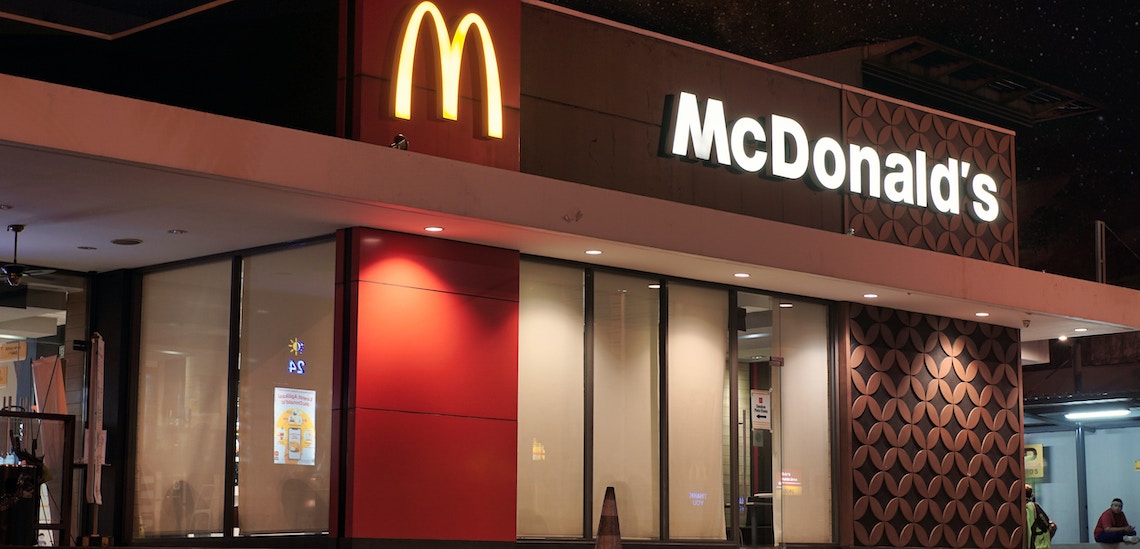
McDonald's image by Visual Karsa on unsplash.com
Written by Ben Hensley
Gov. Gavin Newsom signed a revamped AB 1228 on Thursday, reflecting a compromise with the fast food industry that peels back a joint liability threat in favor of a $20 minimum wage for workers.
The signing of AB 1228, authored by Assemblymember Chris Holden (D-Pasadena), follows one of Sacramento’s more consequential games of political chess between legislators and representatives of fast food industry franchisors and owners.
AB 1228 undos parts of AB 257, the Fast Food Accountability and Standards Recovery Act Newsom signed last year that would’ve created a “Fast Food Council” with authority to govern wage-and-hour matters and working conditions for the industry.
The compromise also averts a fast food industry plan to spend up to $250 million to pass a 2024 voter referendum preventing AB 257 from moving forward.
Ali Nekumanesh, president at Eagle Management Business Consulting and executive vice president of Deli Delicious Franchising Inc. in Fresno, said the resulting compromise was the best course to ensure the survival of the franchise industry.
“As a small business owner myself, and as an executive of a QSR (quick-service restaurant) Franchise system, in as much as I see deep rooted issues with the Bills and the resulting provisions, I believe it is the best that under the circumstances could have been done to avert a situation that would have been detrimental to the existence of smaller businesses in general and franchising in particular,” Nekumanesh said.
The Joint Employer Agreement introduced by AB 1228 — which was eliminated through negotiation — would have made franchisors equally responsible for the actions of their franchisees, which industry leaders fear could stunt franchise development.
Nekumanesh said many franchisees are drawn to the idea of owning after careers spent working for the establishment.
“I don’t believe Mr. Holden understands the franchise model and how it works,” Nekumanesh said in a story published by The Business Journal earlier this year. “This is a way for them [franchisees] to get a start while drastically reducing the propensity of business failure — because in franchising, people know the name.”
Also under the agreement, a wage increase to $20 an hour for fast food employees will go into effect starting next year — a boost from the current $15.50 per hour minimum wage in California.
Under the bill, the mandatory raise would affect all fast food restaurants that operate 60 or more locations nationwide.
It does not, however, apply to establishments that operate bakeries on the premises — such as Panera Bread — and does not include restaurants that operate within grocery stores that employ individuals at the restaurant, such as Walmart and Save Mart.
Fast-casual eateries such as Chipotle would be subject to the wage increase.
“[This bill], as amended, creates a path forward to resolve employer community concerns around the content of AB 257 (2022) while preserving fast food workers’ hard fought efforts to secure a seat at the table and means to raise standards,” wrote AB 1228 author Holden in a summary of State Senate amendments to the bill. “The joint liability provisions of [this bill] will be replaced with an updated version of AB 257’s Fast Food Council that will go into effect providing the referendum is withdrawn by January 1, 2024.”
The Fast Food Council, a main concern for many franchisors and owners, will comprise nine voting members including two representatives each from the fast food industry, franchisees or restaurant owners, fast food restaurant employees and advocates for fast food employees.
It would exclude unelected members of the California Department of Industrial Relations, as was previously in AB 1228.
The council will also include one unaffiliated member who has not received income from the fast food industry or labor organizations for two years prior to their appointment.
A number of other amendments – 47 in total – were made to the bill, including amendments regarding discriminatory practices, scheduling, transparency requirements and other elements.
The $20 hourly minimum wage goes into effect on April 1, 2024. The council will then have the power to increase wages annually through 2029, when the council is scheduled to sunset.
The perceived “win” for employees did not come without some compromise.
Under AB 257, the council would have been granted power to increase wages to $22 per hour during the first year, with a maximum increase of 3.5% or an amount based on consumer price index increases.
The new bill keeps the upper limit of $22 per hour for employees, but automatically increases the initial employee raise to $20 per hour without council approval. Further increases will be approved by the council and maintain the annual wage increase limits.
The Fast Food Council will also be charged with developing other minimum standards including those dictating working conditions and job training. These changes will be determined by a majority vote in the council, requiring at least five affirmative votes from council members.








